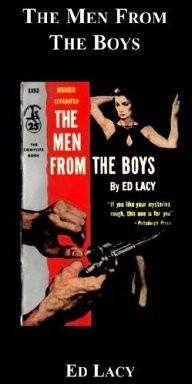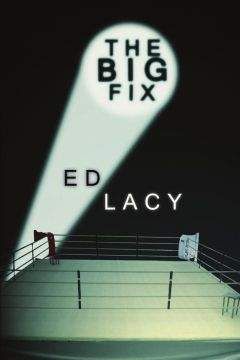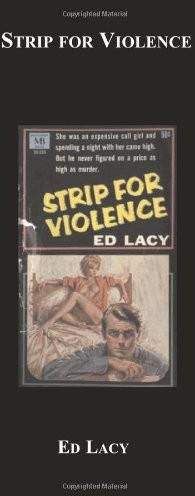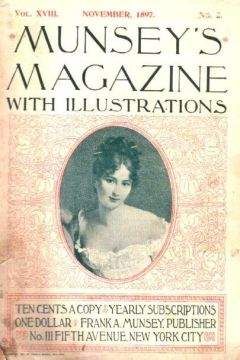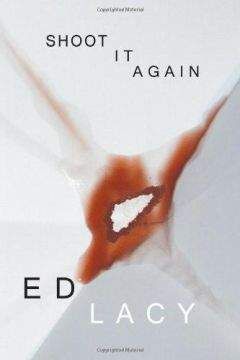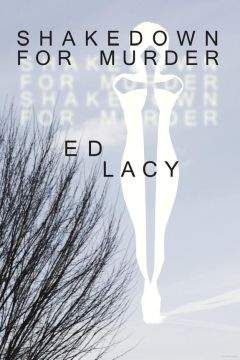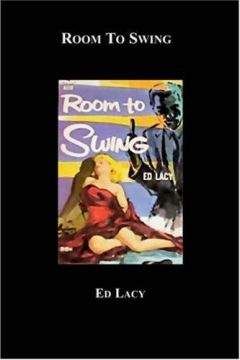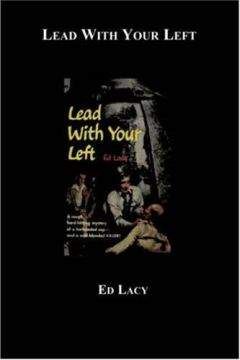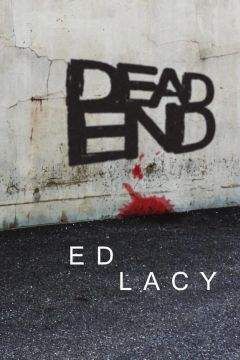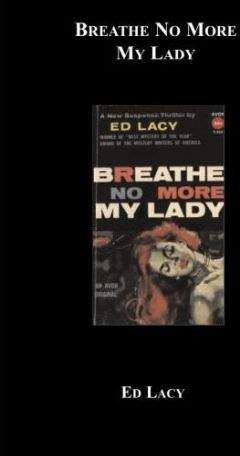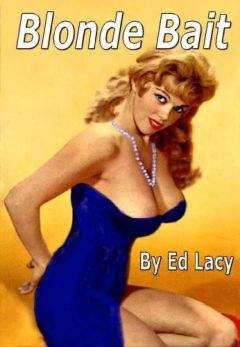Ed Lacy - Enter Without Desire
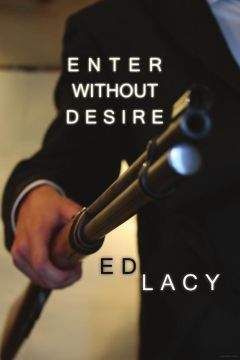
Скачивание начинается... Если скачивание не началось автоматически, пожалуйста нажмите на эту ссылку.
Жалоба
Напишите нам, и мы в срочном порядке примем меры.
Описание книги "Enter Without Desire"
Описание и краткое содержание "Enter Without Desire" читать бесплатно онлайн.
We walked out to the road and I suddenly turned and measured Sid, swung on him.
The night turned very dark and when I came to, I saw Sid's thin face over me, wet with tears. I was lying with my head in his lap. He moaned, “Marsh! Thank God you're alive!”
I sat up, my head spinning, felt of my jaw... I'd forgotten how he could punch.
Sid was still crying. “I could cut off my hand! Marsh, you're my best pal and I slugged you, you with your concussion...!”
“That was years ago,” I said, standing up, brushing myself off.
Sid jumped to his feet. “Honest, Marsh, you feel okay?”
“Sure,” I said, rubbing my jaw. “Must have been nuts to swing on you, way you wallop.”
Sid began laughing so hard he started to cry again. “Marsh, you scared the living crap out of me. I thought you were dead! And listen, I never laid the kid. That's the truth.”
I wanted to grin but my jaw hurt. “I know. I couldn't get no place with her last night, either. Now let's get some sleep and stop acting like dopes.”
We worked till late Sunday afternoon and Bonard was fairly happy with my work—I thought it was great. As we were dressing to go back to the hotel, he said, “About Yvonne, I am glad you both acted with honor. For the sake of my family and your health. Watch.”
We were sipping the last of the alleged cognac, and Yvonne was nibbling those horrible K-ration crackers that tasted like dog biscuits. Bonard opened a sharp little gold pen knife and handed it to her, then tossed part of a cracker in a corner of the barn. He held up a hand for silence, pointing toward the cracker.
I thought he was off his rocker, but after a few minutes a gray rat came out and sniffed at the cracker, Yvonne suddenly threw the knife—a clean expert motion—the blade went through .the rat, pinning him to the rotten floor.
We stared at the tiny pool of dark blood forming under the rat, who thrashed about for a second and then quietly died. It was a hell of a knife throw. I glanced at Sid and he was sweating too. I mumbled, “This is a rough war.”
Sid said, “M-Marsh, you saved my life.... Why we could of been killed!”
With the invasion of Germany we moved out of Paris and for a time were soldiers again, sleeping in tents, eating out of mess kits. We even rushed into the Battle of the Bulge—after a few hours of frantic carbine practice—but got there too late.
When the war was over I didn't exactly know what I wanted to do. I would have liked to stay overseas as long as possible, but I couldn't bring myself to sign up for the occupation army, so I was sent to a repple-depple in the south of France, and there was little chance of getting to Paris. I made a half-hearted attempt to get a job as a truck driver with the Red Cross, so I could be discharged overseas, but nothing came of it.
The repple-depple was crowded, noisy, and uncomfortable, and being among combat soldiers made me a little ashamed. Sid was sent back to the States in October, 194S. Although I had enough points to get out—I'd been in longer than most of the other men—I kept trying to get back to Paris on some sort of assignment. There was talk about going to a French college under the G.I. Bill, but nobody at the camp knew how to go about it, and it ended up as a latrine rumor. There wasn't any privacy in the camp and I couldn't do any sculpting. Finally, in December, I was fed up with the damp cold, stopped ducking shipping lists, and returned to the States. I didn't bother with a leave, but was sent back to Dix and discharged.
I hadn't been a soldier, merely a tourist with corporal stripes.
Mary Jane was living in a large four-room apartment in Flushing. She had spent several years working in an aircraft instrument plant, had over two grand in the bank besides a lot of new furniture. Mary looked swell, slim and even a bit sophisticated. For a few weeks we just hung around the apartment, doing a lot of bottle and bed work. I thought for a time we might make a go of it, but things wore thin again. We simply didn't have anything in common.
For the hell of it I saw Kimball once and that turned out to be a disappointing evening—now she was an elderly woman with wrinkles and dyed hair, trying so desperately hard to be young and gay. New York had been one big Smorgasbord table for Kimball during the war years, and she was bubbling over with stories about all the soldiers she had been “friends with.” Somehow the stories seemed old hat to me.
For many months I didn't do a thing but sleep a lot, lounge around the apartment, write to Bonard, tell myself that “tomorrow I'll start sketching, maybe buy clay...”
Mary Jane gave me a wise, patronizing look, as though I'd just been released from a nut-house and had to be humored. One of the current myths of the time was that all soldiers needed “adjustment and readjustment.” It was true I was trying to find myself, but the war had nothing to do with it.
I didn't see Sid for awhile and when we did meet he had changed, no longer wanted to slug somebody after a few shots to demonstrate his punch. He was about to marry a “nice” young girl and work in his in-law's big hardware office. He had paid a thousand under the table for a small apartment in the Village, was going to art school at night, suggested I do the same under the G.I. Bill.
I finally purchased some clay and tools, tried my hand at carving wood—for some stupid reason—and became thoroughly discouraged. I felt too unsettled to do anything for any length of time. I was sending Bonard CARE packages and he wrote once, but his French scrawl was too much for me.
1946 slipped by and we were broke. In '47, Mary tried to get work in an aircraft instrument factory, but they weren't hiring women. She took out her anger with a week's drunk, being sick most of the time, then went back to office work. She began making cracks about me getting off my rear—we couldn't live on her pay—and of course she was right.
Kimball was opening her own agency, having rooked Barrett out of two of his best accounts, and gave me a job doing layout. Little things annoyed me, like having to shave every day, wear a fresh shirt and tie each morning... I didn't have the heart any more for this rat race. I gave it up after a month and went back to my old real estate office, and into the soft routine of collecting rents. With apartments as hard to find as uranium, people were paying their rent promptly, not asking for repairs, so the job was even more of a comfortable rut than before. Although with no repairs, the petty graft was out.
I spent a lot of time at Sid's place, sometimes making a pest of myself. I mean, after all, they only had a two-room place. And if I didn't come home till early morning, or stayed out all night, Mary J. never complained, and that made me feel like a heel. Sometimes I'd try to be a good husband to her, but no dice. I always had this restless feeling, as though waiting for something to happen. And seeing the headlines didn't make me feel any better. Seemed to me the war had been a waste of time, the Nazis were being released as though killing of thousands of people had been as dangerous as passing a red light. Everything had been a waste of time, so far, especially my life.
I got a sudden desire to go home and, to my surprise, Mary thought that was a good idea, and when I got my vacation, I went back to Kentucky.
My answer wasn't there.
Somehow I expected a big change, but nothing had changed, it was like stepping back into my life. Mom looked the same, as if she had grown as old as she ever would while she was young. Pop still looked as though a light breeze would carry him off. I had a new sister who was five years old, the mill was still the mill. Home was still a shack—a shack with a radio and electric toaster and even an electric heater. My oldest brother had left part of his toes in the cold of Dutch Harbor, and another brother had decided to stay in the army and was in Japan.
I was still glad to get away from home.
When I returned to New York, Sid told me he had heard from a friend in Paris that Bonard had died. That was a shock, a kick in the heart. The death of this old wino, this great liar, really upset me. Over a brace of drinks I took stock of one Marshal Jameson and the inventory wasn't much. Bonard's death made me realize life was rushing by and I was still not doing anything I wanted to, cared about. I was getting past the “young man” stage and it was about time I stopped being a bum.
I staggered home about three in the morning, sat on the bed and awoke Mary, told her, “Baby, this is all cockeyed—been wrong from the start. No sense holding on to a vacuum. I want out.”
“You mean, we should separate?”
“That's it.”
“Will you give me a divorce?”
“Of course. That's the best thing I can give you.”
“Marsh,” she asked slowly. “Are you sure it won't... hurt you?”
“Be good medicine for the both of us. When do you want to see a lawyer, get this going and...?”
“Tomorrow.”
Mary must have seen the surprise on my face. I'd expected a lot of hysterics and screaming, and oddly enough, Mary Jane was still so helpless, I couldn't bring myself to hurt her.
Now she said, her voice low and clear in the still room, “I know we haven't been happy. But I didn't want to be the one to bring things to a head. I knew you'd been through a lot in the war and I felt...”
“Stop it, I wasn't a hero. The war was a breeze for me.”
“Marsh, are you sure you can make out okay—alone? I owe you that, at least.”
“Don't worry about me. God, you don't owe me anything. I'm the one who owes. What will you do?”
“I'll see a lawyer in the morning. I think you should sleep on the couch from now on.”
“Sure. You can have the apartment, everything we have. And thanks for taking all this so... bravely.”
“Marsh, this is as good a time as any to tell you. And I meant to tell you, no sneaky stuff, understand. I met a guy during the war. Alfred...”
“What?”
“Don't be angry, I was all alone and worried and... well, there was Alfred. I still see him. He wants to marry me. He's a mechanic, got his own garage now in Jamaica. I would have told you sooner, but at first you were just back from overseas and I couldn't tell you, and then you seemed so... so... upset, I didn't want to do anything to... make you sick. Marsh, I know it was wrong to...”
“It wasn't wrong. What we were doing was the wrong thing—all this pretending. Marry this Alfred, Mary. Have a houseful of kids and be happy,” I said, getting up.
“Marsh, you really don't mind?”
“Everything's all right.” And that night I slept on the couch and pounded my ear like I was drugged, the best sleep I'd had in years.
Four months later Mary got her final decree and remarried. Alfred was a stocky, plodding-type, joker about thirty-five, and rather handsome, even with a bald dome.
At one of Sid's parties I'd met a Mexican girl, Ofelia, who had ideas about making marionettes and going on TV. She had a good singing voice, wasn't a bad actress. I was to make the marionettes. Ofelia was exciting in a sort of nervous way—I never knew what she'd do next. She had a furious temper and was always biting me. The second time I saw her we ended up between the sheets, and she was nervous there, too. She agreed to be the corespondent in our divorce, and we even thought it was rather clever to go to Mary Jane's wedding, where Ofelia was the center of attraction, by dint of passing out.
I gave up my real estate job and moved into a loft Ofelia had made over into an apartment, without much success. I spent all my time experimenting with marionettes, and couldn't make them. They either looked awful, were out of proportion, or didn't work. Ofelia and I began screaming at each other about money, borrowing from all our friends. Finally we were busted and we both got jobs in a factory, and Ofelia started seeing a psycho-analyst, who advised her to get the hell away from me.
I found a crummy room and was bored by factory work. I decided there wasn't any sense in letting the G.I. Bill go to waste, so I enrolled at N.Y.U. to get my degree. I managed to finish a year, but living on $75 a month was tough, and I always had the feeling college was unreal—a time killer. Somehow it was silly for a guy of twenty-eight to be acting like a school-boy. And what good would a B.A. do me?
I tried to change to art school, which made more sense, but they were filled up. So I stayed at school and thought about starting with clay again, but never got past the thinking stage. For one thing I couldn't spare the extra bucks. I tried not to hang around Sid's too much. Sometimes I saw Kimball, mainly when I wanted a decent meal. Kimball was okay, she'd even give me a ten spot when I looked too beat—without a pep talk.
During the following summer I decided to take a vacation from school, meaning no more subsistence money. I got Kimball to buy me a few shirts and took a job as a temporary salesman in one of the big department stores. The place was air-cooled, and not a bad way to spend the summer. I stole paints and brushes from the art counter and did some work.
Sid had bought this shack out at Sandyhook and when I went out there for a week-end, I fell in love with the place. It was a real artists' colony, even had a natural red-clay pit and the clay could be used, if you kept wetting it. There was a beach within walking distance, fine fishing and swimming, and at night a lot of characters anxious to drink and shoot the breeze.
That week-end made me snap out of my daze. I decided I was going to be a sculptor, no matter if I starved. I wasn't eating too regularly anyway. Sculpting was the one thing in life I wanted to do and I was going to give myself a crack at it, stop drifting around. Sid was leaving the place in September and when I asked if I could stay there, he said, “You're welcome to it, Marsh, only... be rough. No heat or hot water. I don't even know if they keep the electricity on in these shacks during the winter.”
“I'll manage. I figure I can live on a buck a day. I want to try it for six months. Save like crazy during the summer, maybe get a night job, too. Then I'll go back to school for a month, get that $75 check. If I can start out with about $250—I'll be in.”—
Подписывайтесь на наши страницы в социальных сетях.
Будьте в курсе последних книжных новинок, комментируйте, обсуждайте. Мы ждём Вас!
Похожие книги на "Enter Without Desire"
Книги похожие на "Enter Without Desire" читать онлайн или скачать бесплатно полные версии.
Мы рекомендуем Вам зарегистрироваться либо войти на сайт под своим именем.
Отзывы о "Ed Lacy - Enter Without Desire"
Отзывы читателей о книге "Enter Without Desire", комментарии и мнения людей о произведении.






